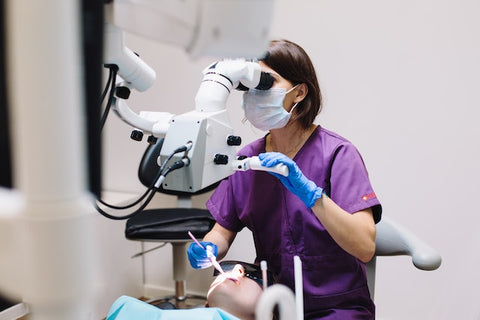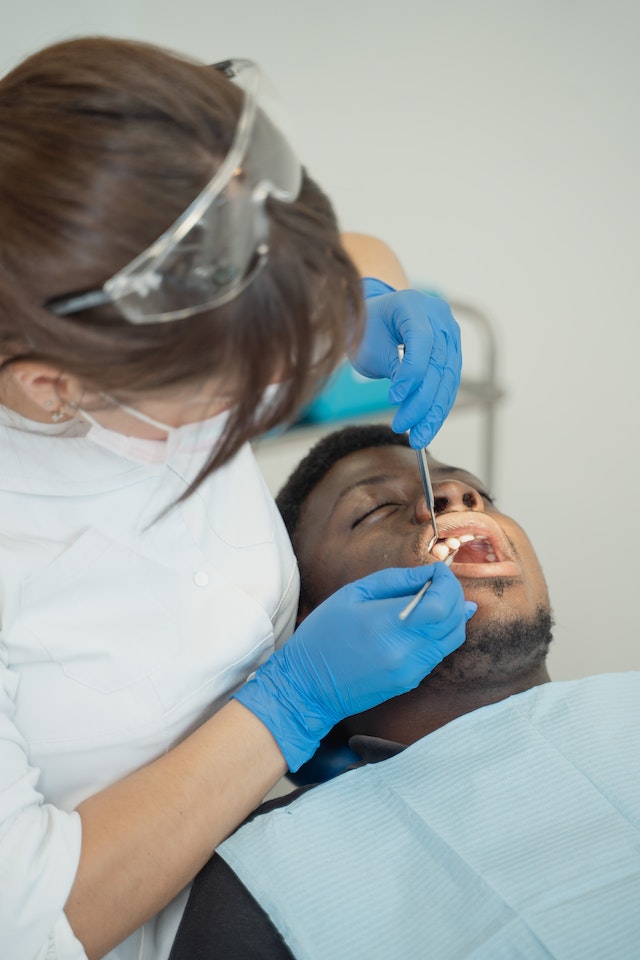
Honey For Dental Problems
You know the benefits of raw organic honey. It's full of antioxidants and has a long history of medicinal use. But did you know that it can also help with gum disease? If you're dealing with gingivitis or other dental problems, you may want to add raw organic honey to your daily routine.
- Antifungal
- Antibacterial
- Antiseptic
Raw organic honey is a natural anti-inflammatory, which means it can help reduce swelling and pain in your gums. It has been used for centuries to treat wounds, including gum disease, because of its antifungal properties that kill bacteria and fungi that cause infections in the mouth (such as Candida albicans) while also speeding up healing time by boosting collagen production in tissue cells around the wound site - just like what happens when you get an injury on your arm or leg.

Raw Organic Honey Kills Germs
The antibacterial properties of honey come from the fact that it is made up of water, sugar and pollen. The water content in raw organic honey makes it an effective natural antiseptic, which means that it can kill germs on contact.
The sugar in the honey acts as an energy source for the good bacteria in your mouth and promotes healthy gum tissue growth by stimulating oxygen flow to the gums.
Pollen is rich in minerals like potassium and calcium which help strengthen tooth enamel while preventing cavities from forming on teeth.

Honey For Periodontal (Gum) Disease
When it comes to periodontal disease, honey has been shown to be effective in killing bacteria. In fact, many cultures have used raw organic honey as a natural remedy for gum disease.
A study published in the Journal of Clinical Periodontology found that people with chronic periodontitis who took two tablespoons of raw organic honey daily had significantly less plaque than those who did not take the supplement.
The researchers concluded that "the use of honey as an adjunct therapy could be beneficial in maintaining oral health."

Raw Organic Honey Helps Prevent Tooth Decay And Gingivitis
Honey is a natural antibacterial agent, antiseptic and anti-inflammatory. It can help prevent tooth decay and gingivitis by killing harmful bacteria in your mouth. It also contains minerals such as iron which helps strengthen teeth, calcium for bone health and potassium which assists with nerve function.

Conclusion
It has been proven by many studies that raw organic honey contains a lot of beneficial ingredients for your teeth and gums. It has antibacterial properties, which helps fight bad bacteria in your mouth and prevents tooth decay, cavities and periodontal diseases like gingivitis or periodontitis (gum disease). The antioxidants present in this natural sweetener also prevent plaque build-up on your teeth by removing the toxins from them.
So, if you have gum disease or are worried about getting it, then you should try using raw organic honey to treat your condition. It has been shown to be effective in helping with gum disease and other issues that may cause problems with your teeth.
Only use real honey, not fake honey:
Remember that the honey you use must be real honey. Commercially processed cheap honey such as that found in supermarkets has lost most of its properties. It is no better than sugar in water.
Only use raw organic honey. Raw means the honey is unpasteurised and has not been heat treated. Organic means the honey is independently certified to be free of chemicals and antibiotics harmful to humans.
We recommend 20+ ACTIVE Raw Organic Coffee Bean Honey From Mexico due to its uniquely high antibiotic activity.
We recommend mixing a teaspoon of it in a glass of lukewarm water, and drinking it half an hour before breakfast, as well as mixing it with water and using as mouthwash twice a day for best results.




